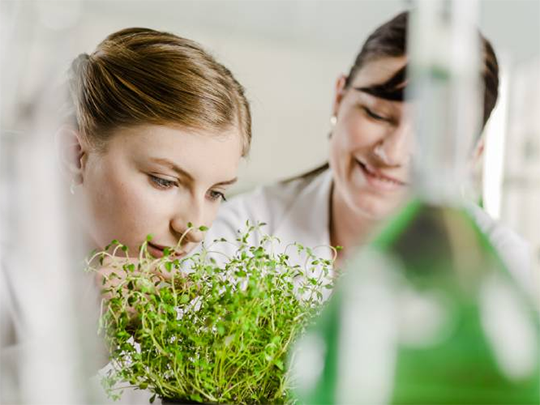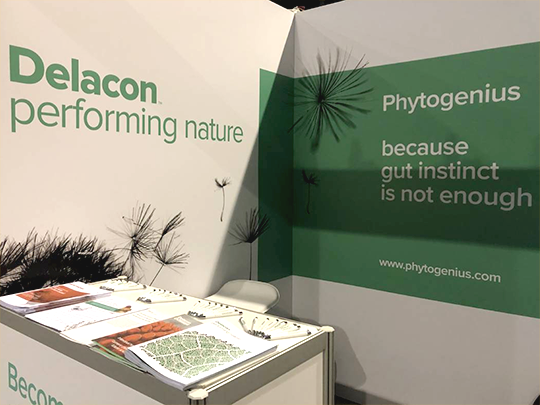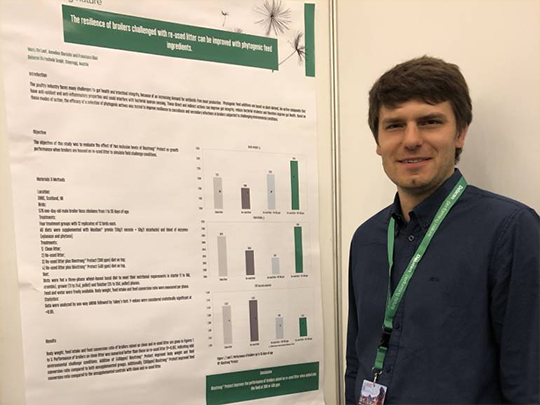Leading the way for more transparency and standardization on the food market
Future animal protein sources, layer nutrition possibilities, and sustainability - only to name three of the major topics at this years ESPN in Poland. What is the contribution of phytogenics to solve these challenges and meet consumer demands? Dive into the phytogenic universe and find it out.
When talking about food production, we can observe that it is not the consumer that is following trends. On the contrary, he is the decision maker on what is being produced and how! We can also observe that this choice is not made arbitrarily, but with determination and certain expectations.
Read in this article about:
- Consumer demand and expectations about food
- How phytogenics can help to meet those expectations
- Insights into this years ESPN
What are the consumer’s demands?

Especially “Clean labels” belong to the top marketing buzz phrases in the past years. Consumers are particularly interested in antibiotic-free production promises, safe food without harmful residues or the promotion of antibiotic resistance. Phytogenic active substances, in particular, play a role when it comes to maintaining the normal functions of a healthy intestine – in facing expected and unexpected challenges. For example, in scientific studies it was shown that essential oils interfere with bacterial quorum sensing, thus reduce the virulence of specific bacterial pathogens. This turns out to be an important pillar in fighting bacteria related gut disorders in farm animals in the post-antibiotic era.
In order to guarantee a high efficiency of phytogenic active substances, a high degree of research, quality management and above all standardization is required. When working with the vast potential of nature, where natural variations exist in the raw materials, standardization is key to demanded consistent product quality. Only a few companies know how to standardize natural ingredients for phytogenic feed additives.

At Delacon, we go a step further to achieve a high standardized quality and regular supply of our raw materials: Since 2014, Delacon co-owns a Quillaja production site in Chile called Fitotek. This strong partnership helps us to ensure a sustainable and regular supply of Quillaja saponins in a standardized quality.
Moreover, these Quillaja saponins lead us to another important topic, which is increasingly becoming the focus of consumer attention: Environmental protection. Phytogenic active substances like quillaja saponins offer ammonia reducing effects, thus making a valuable contribution to reducing greenhouse gas emissions, preventing eutrophication and other negative effects on the environment.
“It is remarkable how much educational work is being done worldwide on how to support the animals’ health without AGPs. “
Where better to discuss those topics than at one of the most influential assemblies in the world?

The 22nd European Symposium on Poultry Nutrition (ESPN) was held in June 10 to 13, 2019 in Gdańsk, Poland. The Organizer of the Symposium was the Polish Branch of the World’s Poultry Science Association (WPSA). These meetings are held every two years in different countries. This event is among the most significant ones for the exchange of information and discussions of poultry nutrition issues in Europe.
This year the debate was divided in four important topics:
- Future protein sources
- Nutrition of Layers
- Gut health (Interaction between nutrition, metabolism and the gut microbiome influence poultry health and immunity)
- Sustainability (Improving environmental sustainability of poultry production using innovative feeding strategies).

Delacon had the opportunity to present a poster on the new trial done with Biostrong® Protect in SRUC Scotland’s Rural College, UK. The objective of this study was to evaluate the effect of dietary inclusion of a blend of Quillaja saponins and essential oils from the Myrtaceae and Asteraceae plant families on performance of broilers to control coccidiosis and dysbacteriosis challenges in combination with a coccidiostat program. This study shows that resilience of the birds can be improved by feeding this phytogenic blend, resulting in better performance results under field alike challenge conditions.
What are your major takeaways of this year's ESPN?

Anne Oberdorf
Anne has always been fascinated by the unknown, the diversity and beauty of nature. Her love for nature brought her to Delacon in 2018 after studying agricultural sciences, where she worked as Technical Communications Manager and later as Product Manager Aquaculture. Since February 2021, she has been taking a new, natural career path outside of Delacon.










